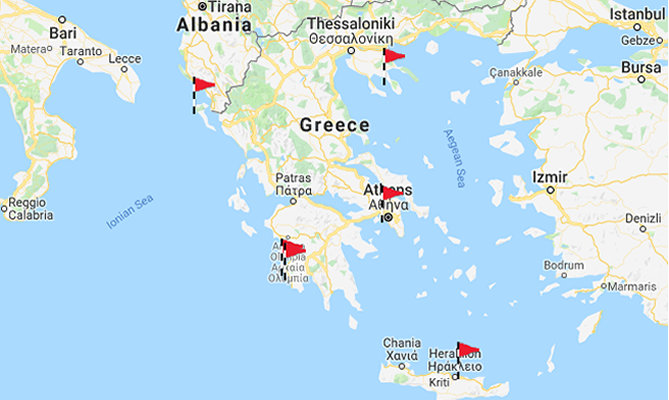
“I’ve never seen anything like this in my entire life,” said one rescue worker, emerging from the wreckage. “It’s tragic. Five hours later, we are finding bodies.”
Smoke and flames emerged from several cars, some of which had overturned when they came off the tracks in the impact, leaving a tangled mess of metal and shattered glass.
The passenger train, carrying 350 passengers, had been travelling from the capital Athens to the northern city of Thessaloniki.
Greek media said it had been carrying many students returning to Thessaloniki after a long holiday weekend.
“It was a nightmare… I’m still shaking,” 22-year-old passenger Angelos told AFP.
“Fortunately we were in the penultimate car and we got out alive. There was a fire in the first cars and complete panic.”
“The collision was like a huge earthquake.”
Some 150 firefighters and 40 ambulances were mobilised for the response, according to Greek emergency services.
“The operation to free trapped people is under way and is taking place in difficult conditions, due to the seriousness of the collision between the two trains,” spokesman Vassilis Vathrakogiannis told reporters.
He said that 32 people have been found dead, while 53 of the injured were in hospital.
But the toll was expected to rise as cranes and rescuers worked through the debris.
“I was stained with blood from other people who were injured near me,” a passenger named Lazos told the newspaper Protothema.
It is not yet known why the two trains collided in what local media is calling the worst “train accident that Greece has ever known”.
“The death toll is likely to be very high”, regional governor Kostas Agorastos told the Skai TV channel.
He said the first two carriages on the passenger train “no longer exist at all”.
– ‘Windows exploded’ –
On the local media site Onlarissa, a young woman said through tears that the train “was stopped for a few minutes when we heard a deafening noise”.
Another passenger told Skai television that “the windows suddenly exploded. People were screaming and were afraid”.
“Fortunately, we were able to open the doors and escape fairly quickly. In other wagons, they did not manage to get out, and one wagon even caught fire,” he added.
The president of the OSE train drivers’ union Kostas Genidounias told AFP from the scene of the accident that the two trains had ended up on the same track and collided head-on.
He said the accident was “unimaginable” and “would have been avoided if the safety systems were working”.
An emergency government meeting was organised after the crash. Greek Health Minister Thanos Plevris went to the scene, while Interior Minister Takis Theodorikakos supervised the response from a crisis management centre.
The two hospitals near Larissa have been requisitioned to accommodate the many injured, according to the fire services, while military hospitals in Thessaloniki and Athens are also “on alert” in case they are needed.
AFP





